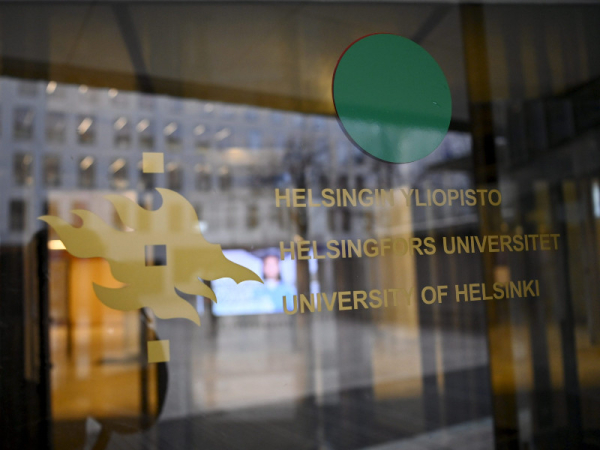
The entrance to Porthania, a part of the city centre campus of the University of Helsinki, in December 2021. A task force consisting of university representatives has unveiled a draft proposal that would dramatically streamline the process of applying to universities in Finland, reports YLE. (Jussi Nukari – Lehtikuva)
- Next Article Estonia leads in citizen initiative efficiency, Finland seeks improvement
THE FIRST DRAFT of a reform proposal that would dramatically reduce the number of university entrance exams was unveiled in Finland on Thursday.
YLE on Thursday revealed that the draft proposal would slash the number of entrance exams to universities in the second joint application period that is organised each spring from 120 to 9. The reform would put an end to cramming for entrance exams and enable applicants to simultaneously apply to several fields in different universities.
The exams would consist primarily of multiple-choice questions. The format would shorten the duration of entrance exams to a maximum of two to three hours and expedite the grading of entrance exams as the lack of essays would enable machine grading.
Tanja Juurus, the head of the task force that drew up the reform, stated to the public broadcasting company that research data support the shift to multiple-choice questions.
Studies show, for example, that multiple-choice questions can measure very deep cognitive skills and that reading comprehension correlates with writing skills. In the field of law, studies have found both that multiple-choice questions alone can create sufficient separation between applicants and that applicants who score highly in essay questions do so also in multiple-choice questions.
The task force is nevertheless exploring the possibility of having questions that test the writing skills of applicants in some of the exams, according to Juurus.
“The need for essay questions or other kinds of writing questions have been brought up by representatives from the field of philosophy, history, communication studies and medicine,” she said. “Discussions about the issue are continuing in these fields because the possible essay questions have a notable impact on when the exams could be organised.”
The first proposal would enable the organisation of all nine entrance exams over a roughly three-week period in June.
“Postponing entrance exams makes it possible for applications to receive the results of certificate-based selection from all universities they applied to before the exams,” highlighted Marja Sutela, the chairperson of the Rectors’ Council of Finnish Universities (Unifi).
Minister of Science and Culture Sari Multala (NCP) told YLE later yesterday that she is supportive of any measure that could rapidly increase the number of highly educated people in Finland.
“This [proposal] would simplify the application process. You wouldn’t have to apply to several places, but you could apply to many different universities at the same time,” she commented to the public broadcaster.
Multala reminded that the entrance exam reform is but one means to expedite the transition of young people to higher education.
Finnish universities have already decided to amend how the certificates of applicants are scored starting in 2026. Universities have also adopted quotas for newly matriculated applicants in a bid to reduce the number of young people who have a gap year.
Currently, more than half of new students are selected based on certificates.
Both the current and previous government also decided to increase student intake by universities and universities of applied sciences. The current government has pledged to allocate over 40 million euros to increase intake over the next four years, including 12 million euros next year.
“That’ll produce almost 2,000 more university students, and [the funds] were targeted now at fields with a particularly notable skills shortage, at social and health care and early-childhood education,” said Multala.
She also underscored the importance of preventing education from concentrating so that some people have several degrees while others have none.
“We want to use our tax euros as effectively as possible, and the best possible way also for individuals to ensure their good labour market standing is to secure the first higher education qualification,” she said.
Aleksi Teivainen – HT
- Next Article Estonia leads in citizen initiative efficiency, Finland seeks improvement
Source: www.helsinkitimes.fi
